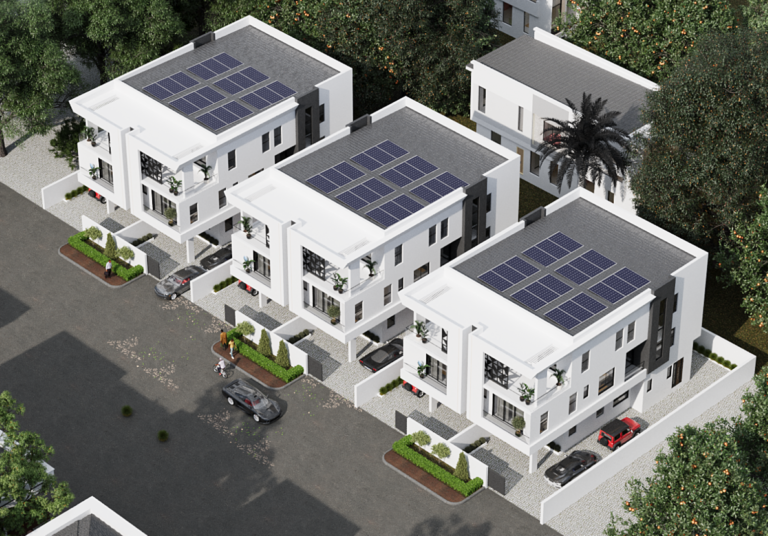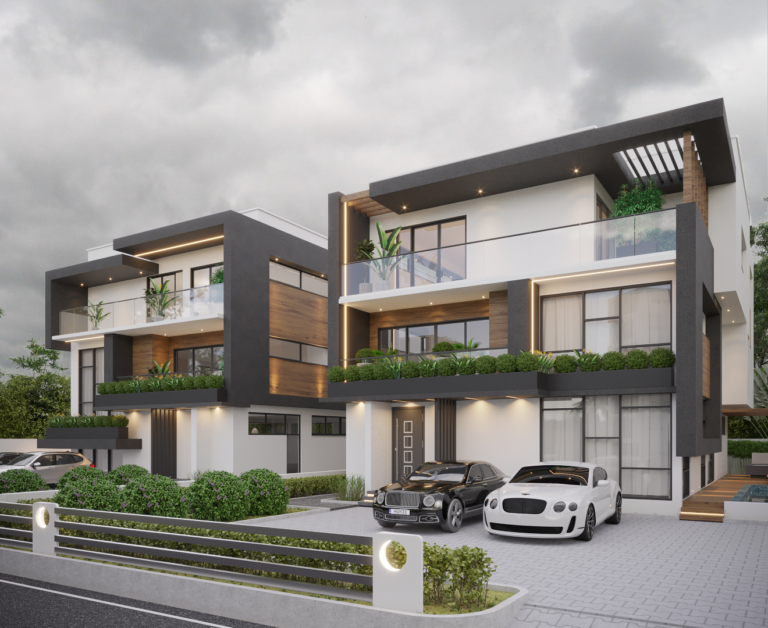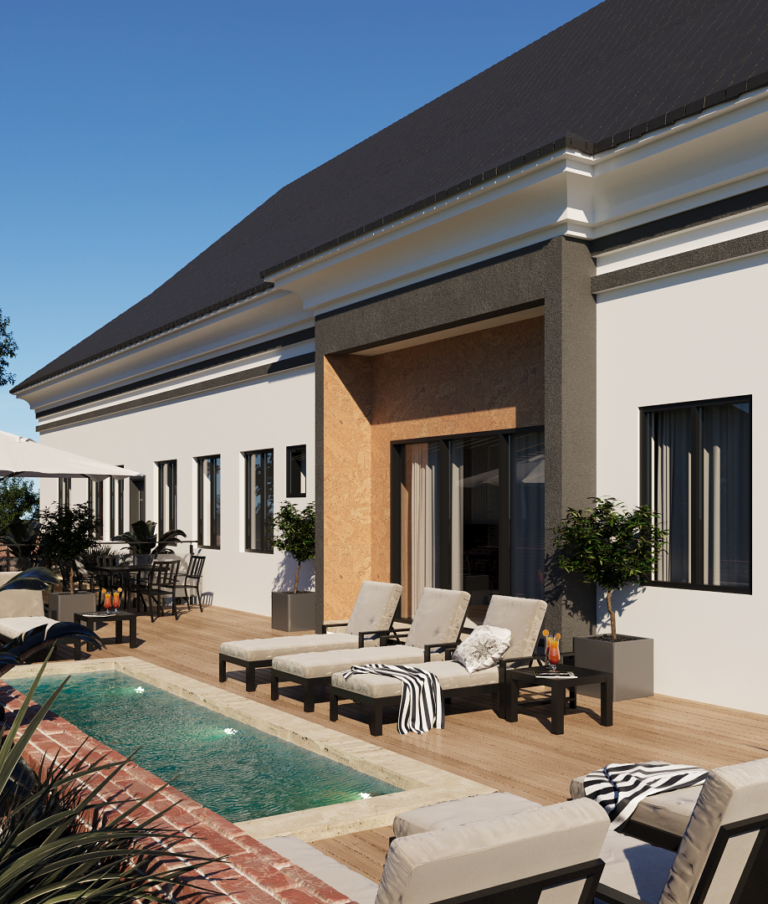Featured Properties

Top 10 African Countries to Invest In Real Estate In 2025
If you asked a global investor 20 years ago where the next big real estate frontier would be, chances are Africa wouldn’t have made their shortlist. Today? It’s a different story.
Across the continent, cities are rising, skylines are transforming, and opportunities once overlooked are now commanding global attention. From Lagos to Nairobi, Accra to Kigali, Africa in 2025 is no longer “the future” of real estate investment, it’s the present.
And here’s the truth: the investors who act now, before the rest of the world fully catches on, stand to build generational wealth. Africa is no longer just a land of myths and adventure, it’s the new frontier for savvy investors eyeing explosive property growth.
This article will show you why Africa is quickly becoming the hottest global market for real estate, what’s driving the boom, and the trends every savvy investor should pay attention to in 2025.
An Overview of Africa’s Growing Real Estate Market
Africa’s property market is no longer “emerging”, it’s accelerating. Consider the data:
- Population surge: By 2050, Africa will host 2.5 billion people, double today’s population.
- Urbanization explosion: Over 50% of Africans will live in cities by 2040, fueling massive demand for housing, commercial spaces, and infrastructure.
- Expanding middle class: More than 350 million Africans are entering the consumer economy, seeking modern housing, shopping complexes, and lifestyle communities.
- Foreign direct investment (FDI): Billions are pouring into African infrastructure, technology parks, and mixed-use developments.
The result? Investors now view African real estate not as a risky bet, but as one of the most promising high-growth assets worldwide.
Why Africa Is Becoming a Global Real Estate Hotspot
The question isn’t why Africa?, it’s why not Africa?
1. Untapped Demand Outpacing Supply
In major African cities, housing demand far exceeds supply. For example:
- Lagos faces a housing deficit of 17+ million units.
- Nairobi’s growing middle class is rapidly outpacing available modern housing.
- In Accra, demand for gated communities and luxury apartments is surging among diaspora investors.
Wherever demand outstrips supply, there’s opportunity.
2. Diaspora Dollars Flowing Back Home
Africans abroad are sending more than $100 billion annually in remittances, much of it flowing directly into real estate. For many, investing in property “back home” is both an emotional connection and a financial strategy.
3. Favorable Policy Reforms
Governments are easing restrictions, offering tax incentives, and partnering with private developers. Countries like Rwanda, Ghana, and Kenya have rolled out pro-investment policies that simplify property registration and foreign ownership.
4. Global Recognition of Africa’s Growth
Institutional investors, development banks, and multinational companies are no longer sitting on the sidelines. From malls to tech parks to residential estates, Africa is firmly on the global investment map.
Key Trends Shaping African Real Estate in 2025
Understanding where the momentum is headed is just as important as knowing the current opportunity. Here are the forces shaping 2025:
1. Urbanization Creating Mega-Cities
By 2030, Africa will be home to at least 5 of the world’s fastest-growing cities. These urban centers are magnets for both commercial and residential real estate investment.
- Lagos, Nigeria: Already Africa’s largest city, now racing toward a population of 25+ million.
- Kinshasa, DRC: Expected to overtake Paris in size.
- Dar es Salaam, Tanzania: A coastal hub transforming into an economic powerhouse.
For investors, this means a constant, rising demand for housing, malls, schools, hospitals, and modern office spaces.
2. Infrastructure and Mega Projects
From railways to airports to new smart cities, infrastructure is unlocking land value across the continent. Examples include:
- Eko Atlantic (Nigeria) – a modern city rising on reclaimed land from the Atlantic.
- Konza Technopolis (Kenya) – a government-backed “Silicon Savannah” city.
- New Administrative Capital (Egypt) – a multi-billion-dollar smart city project.
These projects don’t just reshape skylines, they create ripple effects across surrounding property values.
3. Rise of Mixed-Use and Lifestyle Communities
Africans want more than four walls, they want lifestyle. Developers are responding with gated estates, golf-course communities, retail-residential hybrids, and beachfront resorts that blend living, working, and leisure.
4. Affordable Housing as a Goldmine
With millions seeking entry-level housing, affordable real estate has become one of the most lucrative and socially impactful investment plays. Governments are incentivizing developers to fill this gap.
5. Sustainability and Green Real Estate
Solar-powered estates, eco-friendly materials, and sustainable designs are no longer niche, they’re becoming mainstream. Investors who align with this trend not only appeal to global ESG (Environmental, Social, and Governance) standards but also meet rising consumer demand for clean, efficient living.
Africa’s real estate boom won’t wait for anyone. Those who hesitate will watch from the sidelines as others acquire prime land, build profitable estates, and capture the first wave of exponential growth. Those who act today, armed with the right insights and local partners, stand to benefit from:
- High rental yields (often double what’s typical in developed countries).
- Rapid capital appreciation in fast-growing cities.
- Diversification away from overcrowded Western markets.
- Legacy-building investments that outlive a single generation.
The next question is simple: Where will you position yourself in this unfolding story?
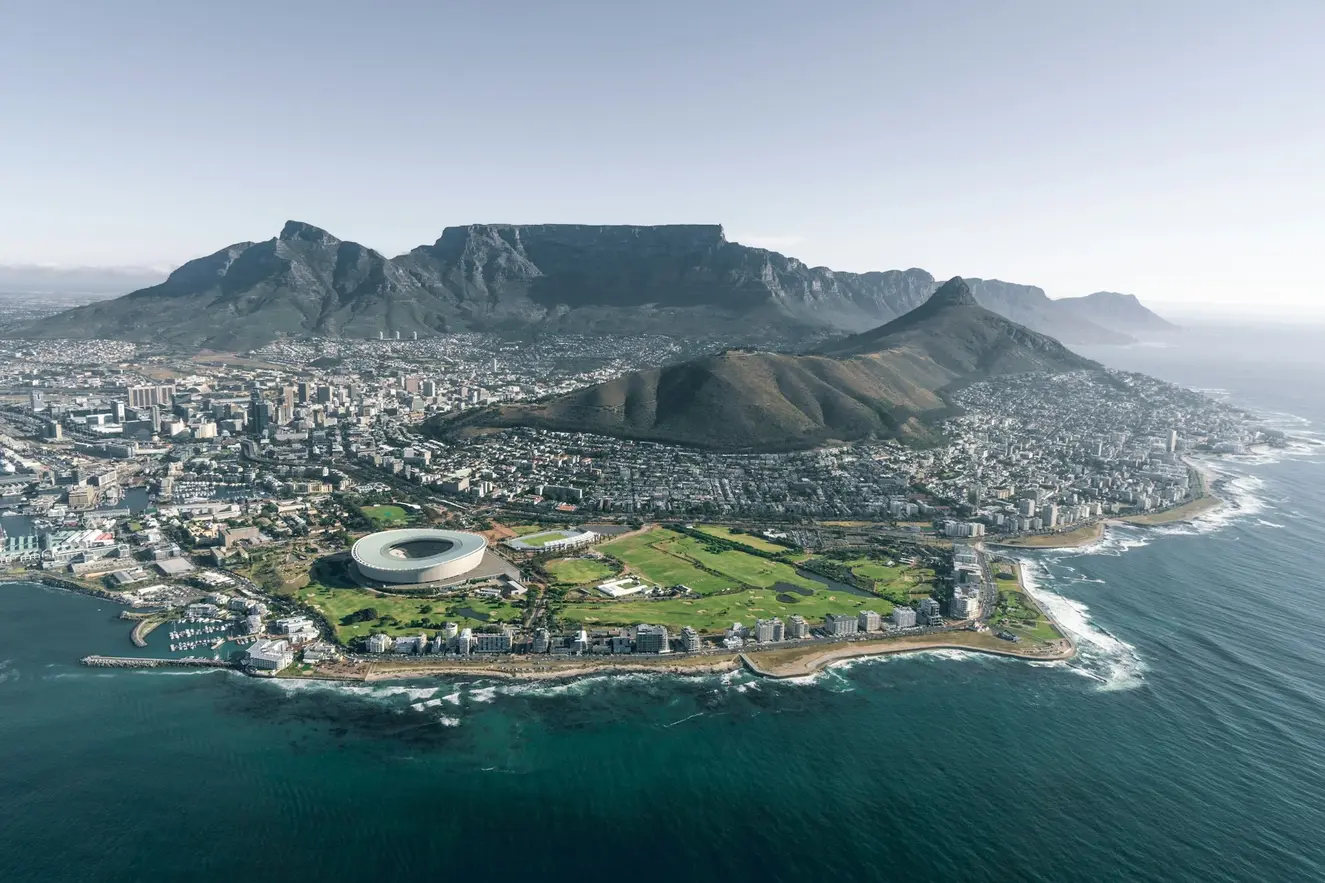
1. South Africa
When most global investors think of African real estate, South Africa often tops the list, and for good reason. It’s the most mature, diversified, and internationally recognized property market on the continent.
Mature and Diversified Real Estate Market
South Africa offers something for every type of investor:
- Cape Town: Known for its stunning coastline and global lifestyle appeal, Cape Town continues to attract high-net-worth individuals, retirees, and international buyers looking for luxury villas, holiday homes, and waterfront apartments.
- Johannesburg: Africa’s financial hub, buzzing with commercial skyscrapers, retail complexes, and a growing residential rental market catering to young professionals.
- Durban: A tourism and logistics hub, with booming demand for beachfront properties, resorts, and industrial parks linked to one of Africa’s busiest ports.
This variety means you’re not locked into one asset class, you can diversify within a single country.
Strong Legal Frameworks and Mortgage Availability
Unlike many African countries where property laws can be complex, South Africa offers:
- Robust property rights backed by a strong legal system.
- Clear title deeds that protect investors against disputes.
- Accessible mortgage financing, making it easier for both locals and foreigners to leverage their investments.
This legal transparency reduces risk, a major advantage for international investors who prioritize security.
Prospects
South Africa’s market is broad, offering multiple profitable entry points:
- Residential: Demand for affordable and mid-market housing continues to grow, driven by urban migration and first-time homebuyers.
- Commercial: Johannesburg’s Sandton district remains a prime hub for office and retail investment, while Cape Town offers mixed-use developments that cater to modern lifestyles.
- Industrial: With Durban and Richards Bay as gateways for trade, warehousing and logistics facilities are in high demand.
Challenges
It’s not all smooth sailing. Investors must navigate:
- Currency volatility – fluctuations in the Rand can affect returns.
- Sluggish GDP growth – South Africa’s economy faces periodic slowdowns.
- Policy uncertainty – while property rights are strong, political debates around land reform occasionally unsettle the market.
Smart investors mitigate these risks by focusing on prime locations, long-term rentals, and sectors (like logistics and affordable housing) that remain resilient in downturns.
Why South Africa Stands Out
South Africa offers one thing few other African markets can match: world-class infrastructure.
- Modern highways, airports, and ports make it easy to connect to global trade routes.
- Reliable telecommunications and strong banking systems support large-scale developments.
- Cape Town and Johannesburg consistently rank among the most livable cities in Africa, appealing not just to investors, but also to tenants, expats, and tourists.
South Africa combines the stability of a developed market with the upside of an emerging one. For investors seeking a secure yet diverse entry point into African real estate, it remains one of the most compelling destinations in 2025.
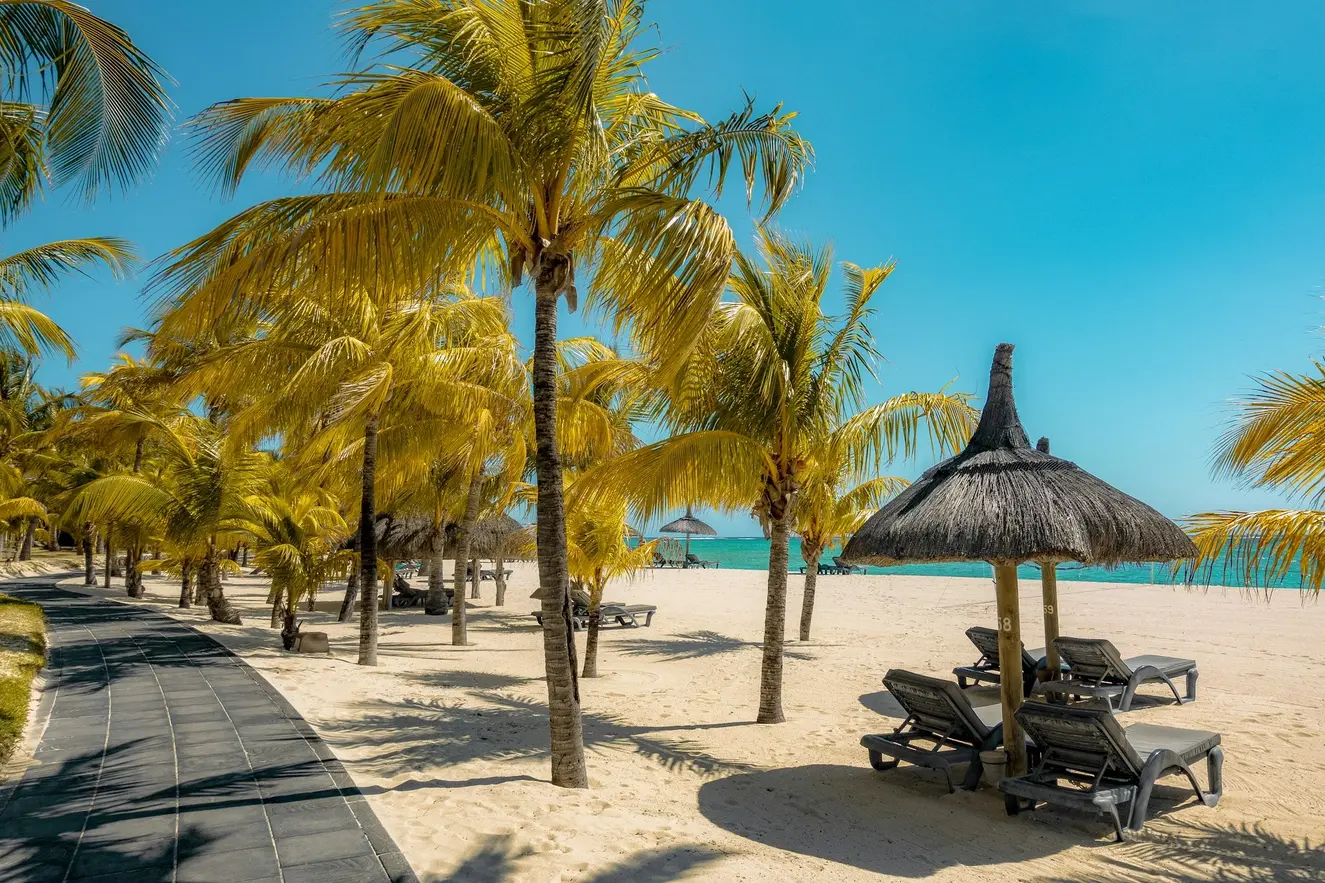
2. Mauritius
If South Africa is Africa’s powerhouse, Mauritius is its jewel. This small island nation in the Indian Ocean has become one of the most attractive real estate destinations for global investors seeking not just financial returns, but also lifestyle, stability, and prestige.
Thriving Luxury Real Estate Market
Mauritius has carved out a niche as a luxury real estate hub:
- Beachfront villas and resort-style residences are in constant demand among international buyers.
- High-end developments, often integrated with golf courses, marinas, and private clubs, cater to wealthy individuals looking for more than just property, but a full lifestyle experience.
- Rental yields are strong in tourist-heavy regions like Grand Baie, Flic-en-Flac, and Black River, driven by a steady influx of visitors and seasonal residents.
This makes Mauritius one of the few African destinations where real estate isn’t just about growth, it’s about global prestige.
Passport-by-Investment Program Attracting Foreign Buyers
One of Mauritius’s biggest draws is its residency and citizenship-linked property investment programs. Through schemes like the Property Development Scheme (PDS), foreign investors can:
- Acquire property and qualify for permanent residency.
- Secure a Mauritian passport through structured investment routes, giving visa-free access to over 145 countries.
- Establish tax residency in one of the most investor-friendly financial jurisdictions in the world.
This has made Mauritius a magnet for wealthy Europeans, Asians, and Africans who want both a safe base and a powerful second citizenship.
Growth Prospects in Residential and Resort Properties
Mauritius is expanding beyond luxury to meet growing demand in:
- Residential estates – particularly in smart, eco-friendly gated communities that offer security, leisure, and modern amenities.
- Resort-linked properties – developers are blending private residences with branded hotels, giving owners both personal use and rental income through hospitality management.
- Commercial investments – while smaller compared to South Africa or Nigeria, Mauritius’s stable economy and growing expat population create opportunities in retail and office space.
Ideal for High-Net-Worth Investors Seeking Lifestyle and Security
Mauritius offers something money can’t buy in many other markets: peace of mind.
- Political stability and strong legal protections for foreign investors.
- A favorable tax regime – no capital gains tax, low corporate tax rates, and attractive double taxation agreements.
- Lifestyle benefits – pristine beaches, world-class schools, top-tier healthcare, and a cosmopolitan culture.
For high-net-worth investors, Mauritius isn’t just about property. It’s about buying into a secure future for themselves and their families, while enjoying the prestige of a global lifestyle.
Why Mauritius Stands Out
Mauritius combines the best of three worlds:
- The financial security of a top offshore hub.
- The lifestyle of a world-class island destination.
- The long-term upside of a growing luxury real estate market.
Lifestyle, and security, Mauritius is one of the most compelling African real estate destinations in 2025.
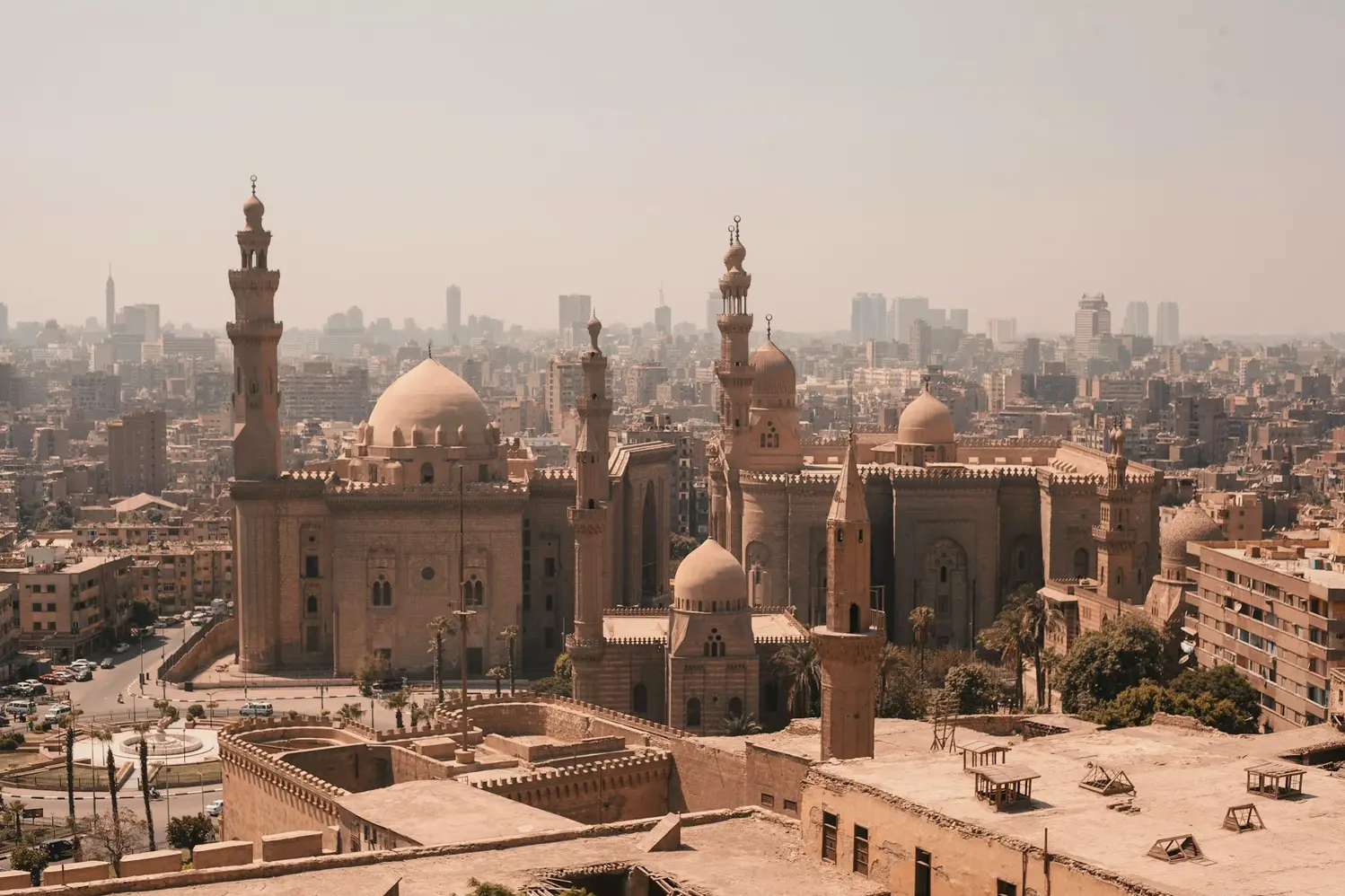
3. Egypt
Few countries balance history and modern growth like Egypt. With ancient cities like Cairo and Alexandria anchoring its real estate market, and massive new projects reshaping its future, Egypt in 2025 stands as one of Africa’s most dynamic and ambitious property destinations.
Rapid Urban Growth and Mega Projects
Egypt is undergoing one of the most dramatic urban expansions in the world. At the center of this transformation is the New Administrative Capital, a $58 billion mega-project east of Cairo designed to:
- Relieve congestion in Cairo (a city of over 20 million).
- Host government ministries, embassies, and multinational headquarters.
- Feature high-rise business districts, smart infrastructure, luxury housing, and world-class amenities.
Other large-scale developments, like New Alamein City on the Mediterranean coast, show Egypt’s determination to build modern urban centers that rival those in the Gulf and Asia.
For investors, these projects unlock opportunities in residential, commercial, retail, and hospitality real estate, with ripple effects boosting values across nearby regions.
Historic Cities as Investment Hubs
Egypt’s established cities remain core real estate magnets:
- Cairo: Africa’s largest city continues to attract demand for apartments, offices, and retail spaces, especially in affluent suburbs like New Cairo and 6th of October City.
- Alexandria: A Mediterranean hub with rising demand for seafront apartments, commercial centers, and hospitality properties fueled by tourism.
- Luxor & Aswan: While smaller markets, their tourism-driven economies provide steady demand for boutique hotels, guesthouses, and short-term rentals.
These cities combine historical significance with consistent demand, making them resilient investment centers.
Residential and Commercial Real Estate Boom
Egypt’s property boom is fueled by a growing middle class and international investors. Key opportunities include:
- Residential estates: Affordable and mid-market housing remains in high demand due to rapid urbanization and a young, growing population.
- Commercial developments: Office towers, malls, and mixed-use complexes are thriving in both Cairo and the New Administrative Capital.
- Hospitality & resorts: Egypt’s Red Sea coast (Sharm El Sheikh, Hurghada) continues to expand with resorts and vacation properties catering to global tourists.
Challenges and Opportunities
Egypt offers massive opportunities, but investors must be aware of challenges:
- Complex regulations: Property ownership laws can be intricate, particularly for foreigners. Careful legal guidance is essential.
- Currency volatility: The Egyptian pound has faced devaluations, which can impact returns but also create attractive entry points for dollar-based investors.
- Political and economic reforms: While reforms are improving transparency, sudden policy changes can create uncertainty.
That said, Egypt’s government has shown strong commitment to positioning the country as a regional investment hub, especially through public-private partnerships in real estate.
Why Egypt Stands Out
Egypt’s real estate market is unlike any other in Africa:
- Scale: One of the continent’s largest populations, generating constant housing and commercial demand.
- Heritage: Established urban centers with resilient long-term value.
- Ambition: Mega-projects like the New Administrative Capital that redefine the future of African cities.
For investors who want exposure to both high-growth modern projects and historic, stable hubs, Egypt offers one of the most balanced and compelling opportunities in 2025.
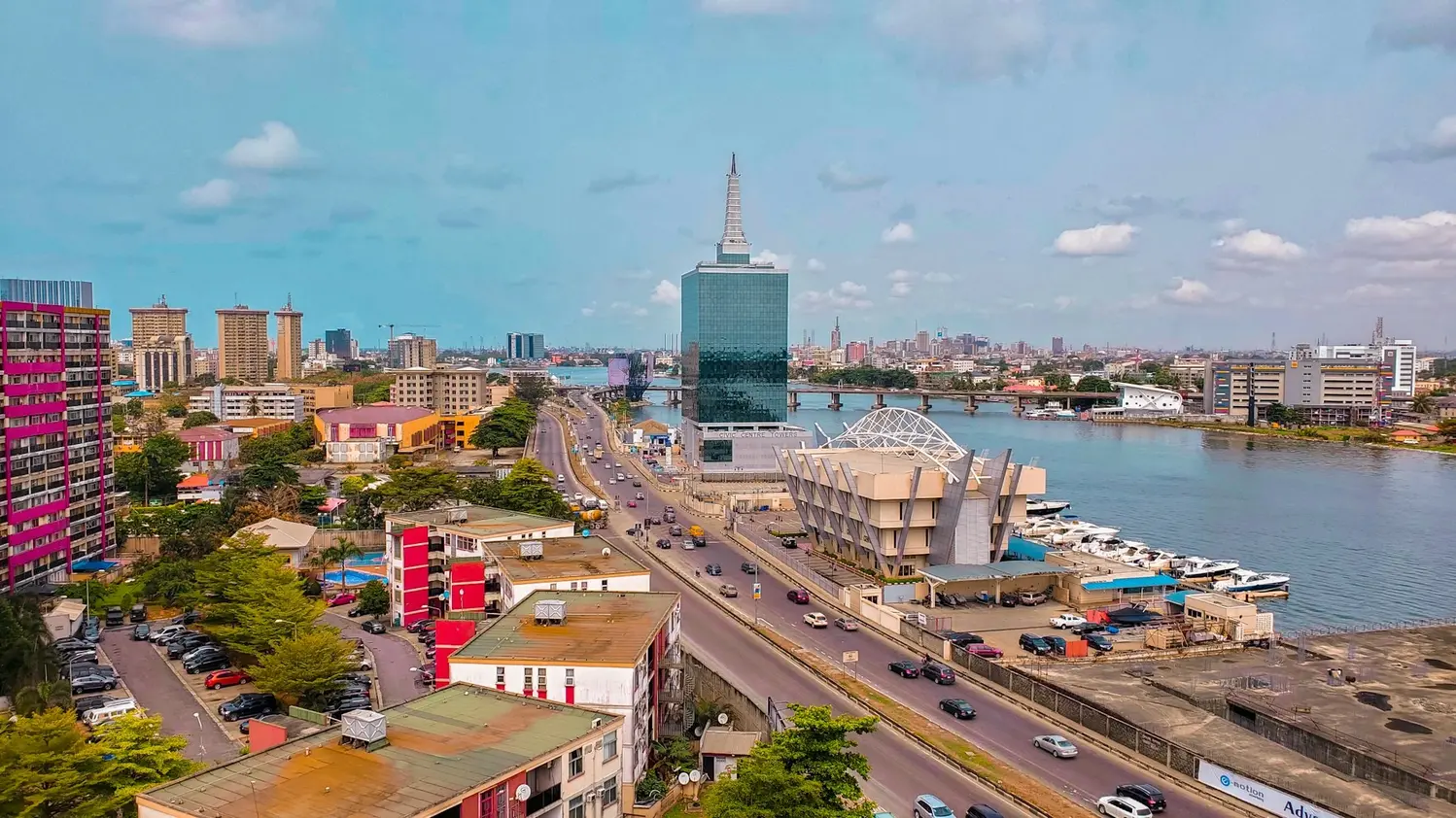
4. Nigeria
When it comes to sheer demand, no African country rivals Nigeria. With a population of over 220 million, and growing rapidly, Nigeria represents the continent’s largest real estate market. For investors with vision and the right local partners, the opportunities are immense.
Largest Real Estate Market by Population Demand
Nigeria’s real estate market is fueled by three powerhouse cities:
- Lagos – Africa’s economic capital, with a population nearing 25 million. Demand here spans everything from affordable housing for low- and middle-income families to luxury apartments and waterfront developments in areas like Victoria Island, Lekki, and Banana Island.
- Abuja – The nation’s capital, home to embassies, government offices, and a rising professional class. Its well-planned layout, gated communities, and commercial hubs attract both local and international investors.
Port Harcourt – A key oil and gas hub with steady demand for housing, retail, and office spaces driven by expatriates and corporate tenants.
This trio alone makes Nigeria one of the largest and most diversified property markets in Africa.
Strong Housing Deficit Fueling Demand
Nigeria faces a staggering housing deficit estimated at 17 – 20 million units. This creates consistent demand across the spectrum:
- Affordable housing: Millions of urban migrants and young families need entry-level homes.
- Mid-market and upscale housing: Professionals, returnees from the diaspora, and high-net-worth Nigerians are driving demand for modern gated estates.
- Luxury real estate: Despite economic challenges, luxury demand remains strong in exclusive Lagos neighborhoods where land is scarce and prestige is everything.
For investors, this shortage means sustained opportunities for both development and rental yields.
Dynamic but Complex Market with Notable Risks
Nigeria’s potential comes with challenges that investors must carefully navigate:
- Regulatory complexity – Land ownership laws vary across states and can be difficult for foreigners to navigate without trusted local partners.
- Infrastructure gaps – Inadequate roads, power supply, and drainage can affect property values and development costs.
- Economic volatility – Oil dependency makes the economy sensitive to global price swings, while inflation and currency devaluation can impact returns.
- Security concerns – Regional instability can affect certain markets, though Lagos and Abuja remain relatively more secure.
Savvy investors who enter Nigeria do so with local expertise, due diligence, and long-term horizons.
Opportunities Driven by Economic Expansion and Urban Migration
Despite the risks, Nigeria’s real estate story is ultimately one of growth:
- Urbanization: Over 50% of Nigerians will live in cities within the next decade, driving relentless demand for housing, retail, and infrastructure.
- Diaspora investment: Nigerians abroad are among Africa’s most active diaspora investors, channeling billions of dollars into residential and commercial properties.
- Commercial expansion: Lagos remains Africa’s leading startup ecosystem, fueling demand for office spaces, co-working hubs, and retail developments.
- Mega-projects: Initiatives like Eko Atlantic City, a futuristic smart city rising from reclaimed land, highlight the scale of Nigeria’s ambitions.
Why Nigeria Stands Out
Nigeria is the definition of high risk, high reward.
- Its massive housing deficit guarantees long-term demand.
- Its diaspora-driven investment injects billions of dollars annually.
- Its mega-cities are magnets for population growth and urban development.
For investors willing to embrace complexity and partner with trusted local experts, Nigeria offers some of the highest upside potential in African real estate in 2025.

5. Kenya
In East Africa, Kenya leads the pack when it comes to real estate investment. Its capital, Nairobi, has evolved into one of the continent’s most vibrant property markets, driven by urban growth, government reforms, and a strong wave of innovation. For investors seeking a foothold in East Africa, Kenya offers a compelling blend of stability, opportunity, and returns.
Nairobi
Nairobi is more than just Kenya’s capital, it’s the beating heart of East Africa’s economy. The city’s rapid transformation is visible in:
- Residential estates: Middle-class neighborhoods like Kilimani, Kileleshwa, and Westlands continue to see demand for modern apartments, while gated communities in Karen, Runda, and Lavington attract affluent buyers.
- Commercial property: Nairobi is home to multinational headquarters, regional NGOs, and startups, making it a hotspot for offices, co-working spaces, and retail centers.
- Hospitality and tourism: With Kenya’s reputation as a safari and conference hub, Nairobi’s hotel and serviced apartment market remains strong.
Nairobi’s status as a regional hub means that demand is consistently reinforced by both local growth and international presence.
Government Support for Infrastructure and Affordable Housing
Kenya’s government has prioritized real estate as a pillar of economic growth, with strong policy backing:
- Affordable Housing Program: Part of the country’s “Big Four Agenda,” this initiative aims to build hundreds of thousands of affordable housing units, opening doors for private developers and investors.
- Infrastructure expansion: Projects like the Nairobi Expressway, new bypasses, commuter rail upgrades, and modern airports are increasing connectivity and unlocking land value in previously overlooked areas.
- Ease of doing business reforms: Improvements in property registration and investment policies are making Kenya more accessible to foreign investors.
This combination of policy support and infrastructure upgrades creates a favorable environment for long-term real estate growth.
Innovation in Real Estate Tech and Urban Development
Kenya is known as the “Silicon Savannah” for its innovation in technology, and this spirit is reshaping its property sector.
- PropTech solutions are making property search, financing, and management more transparent and efficient.
- Smart developments are being designed with sustainability and green building practices at their core.
- Mixed-use projects, such as Two Rivers Mall and Tatu City, combine retail, residential, commercial, and recreational spaces into self-contained communities.
This forward-looking approach makes Kenya’s real estate market attractive to investors seeking exposure to modern, future-ready developments.
Attractive for Investors Seeking High Returns in East Africa
Kenya offers strong fundamentals that translate into compelling returns:
- High rental yields in Nairobi’s prime areas, often outperforming comparable markets in the region.
- Steady capital appreciation, particularly in areas benefiting from new infrastructure like Athi River, Thika Road, and Syokimau.
- Regional dominance, as Nairobi serves as the entry point for multinationals expanding into East Africa.
Why Kenya Stands Out
Kenya’s real estate market offers investors a rare combination of rapid urban growth, strong government support, and a culture of innovation.
- It’s fast-growing yet relatively stable compared to peers.
- It’s innovative, adopting technology-driven solutions to modern challenges.
- It’s a gateway market, offering exposure to East Africa’s broader economic rise.
For investors who want both strong short-term returns and long-term regional positioning, Kenya, and especially Nairobi, is one of the smartest real estate bets in Africa for 2025.
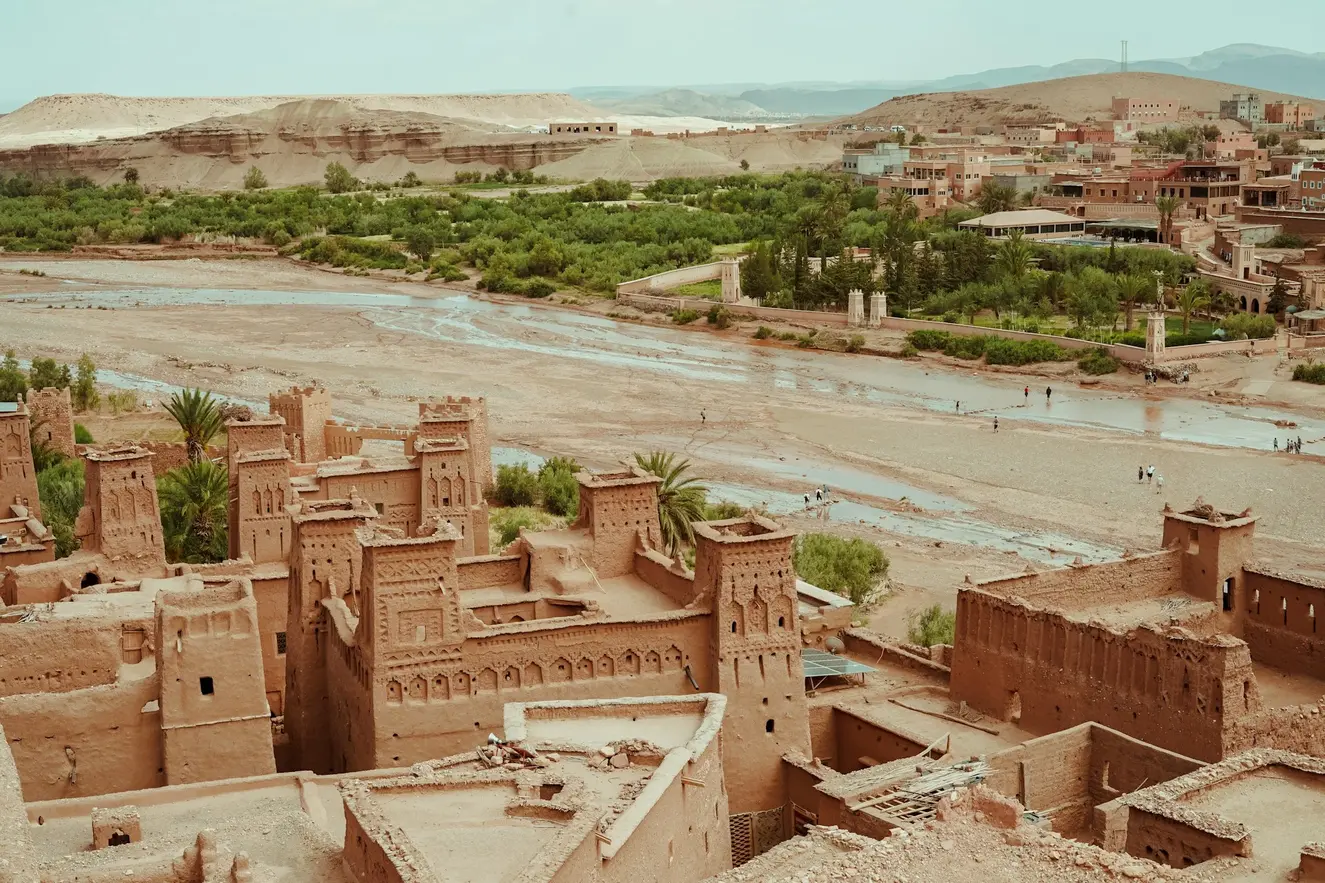
6. Morocco
Morocco stands at a crossroads of continents, both geographically and economically. Positioned at the gateway between Africa and Europe, this North African nation has become one of the most attractive real estate destinations for investors seeking a mix of cultural charm, strategic location, and long-term growth.
Strategic Location Bridging Africa and Europe
Few countries can rival Morocco’s geographical advantage:
- Just 14 kilometers separate Morocco from Spain, linking it directly to European markets.
- The Port of Tangier Med, one of Africa’s largest, makes Morocco a logistics hub for trade between Africa, Europe, and the Middle East.
- Growing connectivity through modern highways, high-speed rail, and international airports has opened up new corridors for real estate development.
For investors, this proximity to Europe not only boosts Morocco’s global appeal but also ensures consistent demand for both residential and commercial properties.
Diverse Real Estate Opportunities
Morocco offers an unusually broad mix of real estate assets:
- Traditional medinas – In cities like Marrakech and Fez, historic riads (courtyard homes) are being restored and converted into boutique hotels, guesthouses, or high-end residences for cultural enthusiasts.
- Modern coastal developments – Casablanca and Tangier feature sleek residential complexes, office towers, and shopping malls, catering to both local elites and international buyers.
- Resort properties – Coastal cities like Agadir and Essaouira are booming with beachfront villas, resorts, and golf-course communities that blend lifestyle with investment potential.
This diversity makes Morocco appealing to different investor profiles, from those seeking lifestyle-driven properties to those eyeing high-yield commercial plays.
Strong Tourism Fueling Demand
Tourism is Morocco’s lifeblood, and it directly drives real estate demand:
- Over 13 million tourists visit annually, with Marrakech consistently ranking as one of Africa’s top global destinations.
- Short-term rentals, vacation homes, and resort-linked residences remain highly profitable due to strong international interest.
- Major international hotel chains continue to expand, creating opportunities for co-investments in hospitality-linked real estate.
Tourism not only boosts the rental market but also enhances Morocco’s reputation as a global lifestyle destination.
Government Initiatives to Attract Foreign Investment
Morocco’s government has actively positioned the country as a real estate and investment hub:
- Foreign ownership is relatively straightforward, with transparent processes for property registration.
- Incentives for tourism-related and industrial investments attract international developers.
- Large-scale urban projects, like Casablanca Finance City and the Tangier Free Zone, signal Morocco’s ambitions to become Africa’s business gateway.
These reforms, paired with Morocco’s stable political climate, have given investors greater confidence compared to other regional markets.
Why Morocco Stands Out
Morocco’s appeal lies in its ability to offer the best of both worlds:
- Cultural richness – timeless medinas, riads, and heritage properties.
- Modern infrastructure – cities designed for global commerce and tourism.
- Strategic advantage – a secure, stable base at the edge of Europe and Africa.
For investors who want exposure to both tourism-driven lifestyle properties and modern commercial hubs, Morocco offers one of Africa’s most balanced and globally connected real estate markets in 2025.
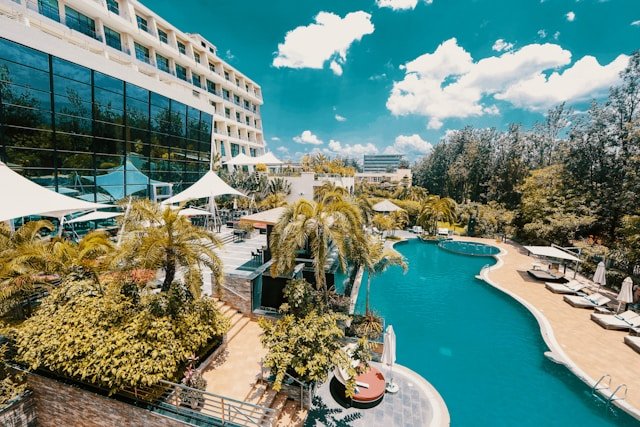
7. Rwanda
Rwanda may be a small nation geographically, but it has become one of Africa’s biggest success stories in governance, reform, and forward-thinking development. Known as the “Singapore of Africa,” Rwanda offers investors not only stability and transparency but also a clear vision for sustainable urban growth.
Strong Governance and Pro-Investment Climate
- Rwanda consistently ranks among Africa’s top performers in governance, ease of doing business, and anti-corruption measures.
- Investors are reassured by the government’s efficient systems, predictable regulatory frameworks, and an unwavering commitment to transparency.
- Real estate policies are clear and actively designed to attract both local and international capital.
This climate means investors spend less time worrying about political risk or bureaucratic red tape, and more time building profitable portfolios.
Kigali
Rwanda’s capital, Kigali, is the beating heart of the country’s real estate transformation.
- Upscale projects: The city is seeing a surge in high-end residential communities, modern office towers, and lifestyle-driven developments.
- Affordable housing: The government has made affordable housing a priority, collaborating with developers to close the gap for middle-income families.
- Urban planning: Unlike many African cities that expanded without structure, Kigali is recognized for its clean streets, organized zoning, and deliberate long-term planning.
For investors, Kigali represents a rare balance: growth without chaos.
Sustainability and Smart Development
What sets Rwanda apart is its future-focused approach.
- Kigali is positioning itself as a model of sustainable urban planning, with green building initiatives, eco-friendly infrastructure, and climate-resilient housing.
- Ambitious “smart city” projects are laying the groundwork for efficient transport, renewable energy use, and digitally enabled property services.
This makes Rwanda especially attractive to impact investors and institutions seeking to align financial returns with sustainable development goals.
Why Rwanda Stands Out
- Trustworthy systems: Low corruption and high transparency make it one of Africa’s most investor-friendly environments.
- Strong demand: A young, urbanizing population and rising middle class fuel long-term housing needs.
- Balanced growth: Investors can participate in both luxury and affordable housing, with Kigali offering opportunities across the spectrum.
- Future-ready: Sustainability and smart planning position Rwanda as a forward-looking market where today’s investments are designed to last.
Rwanda may not have the size of Nigeria or South Africa, but what it offers is equally valuable: a secure, transparent, and visionary market where investors can grow with confidence. Kigali is quickly becoming East Africa’s jewel, a city where innovation, stability, and opportunity converge.
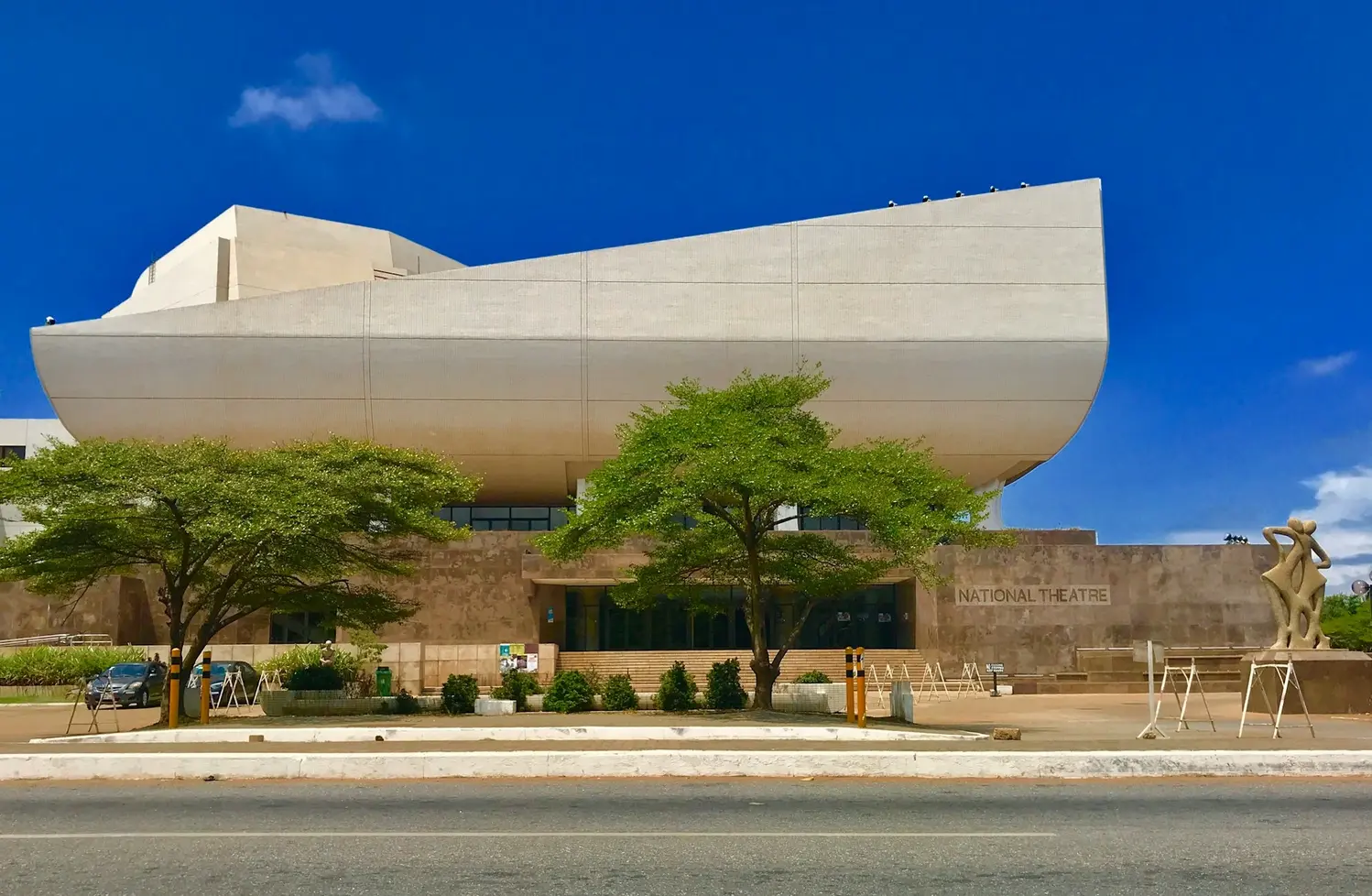
8. Ghana
Ghana has become one of West Africa’s most appealing real estate destinations, driven by political stability, a growing middle class, and strong diaspora interest. With Accra at the center of the boom, the country offers opportunities across residential, commercial, and mixed-use developments.
Political Stability and Investor Confidence
- Ghana is known for its stable democracy, peaceful transitions of power, and relatively predictable policy environment.
- Transparency has been improving, supported by reforms in governance and economic management.
- These conditions give investors reassurance that their capital is protected in the long run, reducing the risks associated with many other West African markets.
Accra
The capital city, Accra, is both a cultural hub and the focal point of Ghana’s real estate growth.
- Diaspora demand: With strong ties to the U.S., UK, and Europe, Ghana has become a top choice for African diaspora investors seeking property “back home.”
- Residential growth: There is high demand for modern apartments, gated communities, and high-rise living, particularly from the middle class and returning diaspora.
- Commercial expansion: Office parks, shopping centers, and co-working hubs are being built to support Ghana’s growing role as a regional business center.
The government has also introduced initiatives such as the “Year of Return” and “Beyond the Return,” which have successfully pulled diaspora attention and investment into Accra’s property market.
Strengthening Investor Protections
- Ghana’s legal system has been steadily improving to provide stronger property rights and safeguards for foreign investors.
- Reforms in land administration and digital registration are reducing disputes and streamlining transactions.
- Investors benefit from bilateral agreements and growing international confidence in Ghana’s regulatory institutions.
Market Outlook
- Residential boom: Urbanization and a young population ensure long-term housing demand.
- Commercial opportunities: Rising interest in Ghana as a business hub creates room for office, retail, and hospitality projects.
- Diaspora-driven growth: With consistent inflows of diaspora investment, especially in Accra and Tema, the market shows resilience even in global downturns.
Why Ghana Stands Out
- Stable democracy and low political risk compared to regional peers.
- Diaspora magnet, making it one of the most popular African countries for international property buyers.
- Rising demand across residential and commercial sectors.
- Improving investor protections, ensuring a safer environment for long-term investment.
Ghana is West Africa’s rising star in real estate, stable, transparent, and deeply connected to the diaspora. With Accra leading the charge, investors have a chance to capture both strong financial returns and a stake in one of Africa’s most culturally vibrant and politically stable nations.
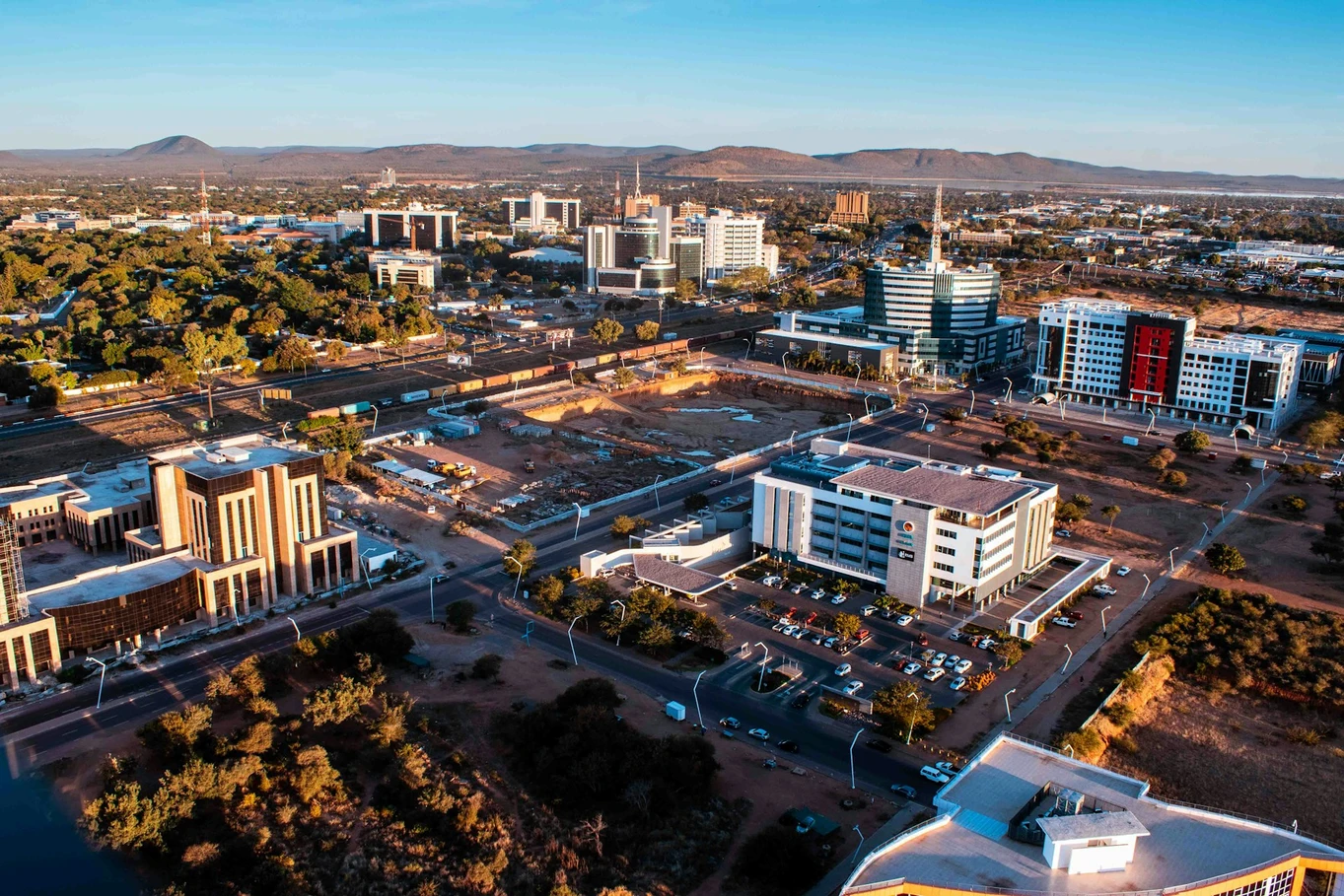
9. Botswana
Botswana is one of Africa’s most politically stable and well-governed nations, with a reputation for prudent economic management and low corruption. Though smaller in scale compared to regional powerhouses, the country offers a secure, steady, and long-term real estate environment, especially centered in its capital, Gaborone.
Political & Economic Stability
- Botswana is widely recognized as one of Africa’s most stable democracies, with decades of peaceful governance.
- Strong rule of law and a low corruption index give investors high confidence in property rights and contract enforcement.
- The country’s diamond wealth has been managed prudently, creating a resilient economy with room for diversification into real estate, finance, and tourism.
Gaborone
The capital city, Gaborone, is the focal point of Botswana’s real estate growth.
- Residential demand: Rising incomes and a growing middle class are driving demand for modern housing, especially gated estates and suburban developments.
- Commercial growth: Office space, retail malls, and hospitality properties are expanding as Gaborone positions itself as a business and diplomatic hub in Southern Africa.
- Cross-border appeal: Botswana’s proximity to South Africa makes Gaborone attractive for cross-border investors and professionals seeking stability and quality of life.
High-Value Development Opportunities
- Residential: Upscale neighborhoods in Gaborone and Francistown are seeing steady interest from local professionals, expats, and regional investors.
- Commercial: Retail centers, mixed-use complexes, and modern office parks are emerging to cater to business growth.
- Tourism real estate: Safari lodges and eco-tourism properties, particularly in areas like the Okavango Delta, add a unique high-value segment.
Attractive Security for Investors
- Strong protections for property ownership and investment.
- Reliable banking and financial systems for foreign investors.
- Political continuity and economic governance that reduces volatility.
Market Outlook
- Steady, not speculative: Botswana doesn’t offer explosive growth like Nigeria or Kenya, but its real estate market is stable and predictable.
- Long-term security: Investors prioritize it for wealth preservation and moderate appreciation.
- Middle-class growth: As incomes rise, demand for modern housing and commercial facilities will continue.
Why Botswana Stands Out
- Stable democracy with robust rule of law.
- Low corruption, ensuring safe, transparent transactions.
- Gaborone-centered growth, balancing residential and commercial development.
- Tourism-linked opportunities add a niche, high-value dimension.
- Smaller, steady market, ideal for investors seeking security over speculation.
Botswana may not deliver the rapid booms of larger markets, but it offers something equally valuable: stability, security, and sustainable growth. For investors seeking a safe entry point into Africa with strong governance and reliable long-term returns, Botswana is a hidden gem.
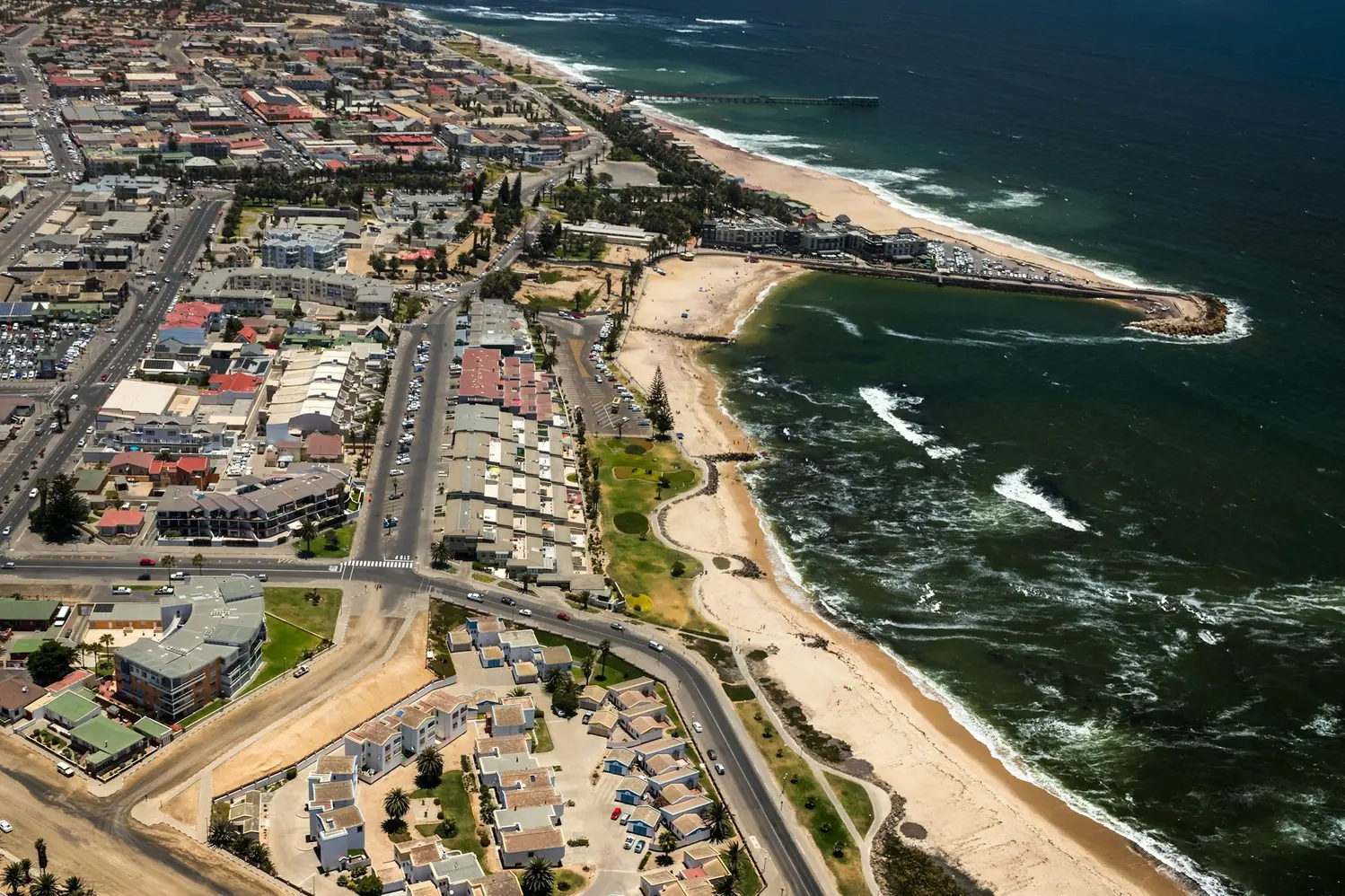
10. Namibia
Namibia is one of Southern Africa’s most underrated but steadily growing real estate markets. With its low population density, breathtaking landscapes, and strong governance, Namibia is becoming a hotspot for eco-tourism, lifestyle estates, and retirement properties. The capital Windhoek, alongside coastal and tourist hubs, forms the backbone of property investment opportunities.
Political & Economic Stability
- Namibia is a peaceful democracy with a relatively low corruption profile and a consistent record of political stability.
- Sound governance, strong property rights, and a well-regulated banking system provide a secure foundation for foreign investors.
- The economy benefits from mining, fishing, and tourism, with government efforts to diversify growth sectors, real estate being one of them.
Windhoek
- Residential demand: As the largest city and administrative center, Windhoek has a growing demand for middle- to high-income housing, gated communities, and modern apartments.
- Commercial property: Retail centers, offices, and mixed-use developments are expanding, driven by both local businesses and international companies.
- Infrastructure: Reliable utilities, roads, and services make Windhoek a safe anchor point for investors.
Lifestyle & Tourism Real Estate
Namibia’s appeal lies in its natural beauty and lifestyle-driven opportunities:
- Tourism hotspots: Swakopmund, Walvis Bay, and Etosha are attracting investors for holiday homes, eco-lodges, and hospitality ventures.
- Eco-tourism estates: Namibia’s conservation-led policies make it an ideal place for sustainable property projects that integrate nature and luxury.
- Retirement appeal: With a peaceful environment, quality healthcare in cities, and lower living costs compared to Europe or South Africa, Namibia is rising as a retirement haven for expats.
Key Development Opportunities
- Windhoek residential estates: Secure, upscale neighborhoods for professionals and expats.
- Tourism-linked properties: Eco-lodges, desert retreats, and safari accommodations near major attractions.
- Coastal markets: Swakopmund and Walvis Bay are hotspots for seaside apartments, guesthouses, and vacation rentals.
- Agricultural estates: With large tracts of land, Namibia offers scope for agro-tourism and lifestyle farms.
Investor Security
- Strong legal framework protects foreign ownership, though some restrictions apply to communal or agricultural lands.
- Stable currency (Namibian Dollar pegged to the South African Rand) eases cross-border transactions.
- Relatively low political and economic risk compared to many African markets.
Market Outlook
- Growing steadily, not rapidly: Namibia offers consistent demand, especially in middle- to high-end housing and tourism real estate.
- Eco-tourism potential: With global interest in sustainable travel, Namibia is well-positioned for growth.
- Lifestyle appeal: Retirement and lifestyle estates are gaining traction, especially with European buyers.
Why Namibia Stands Out
- Low population density + natural beauty = unique value for eco-tourism and lifestyle property.
- Windhoek as a reliable core with expanding residential and commercial demand.
- Tourism and retirement markets add resilience and diversity to real estate opportunities.
- Balanced mix of peace, nature, and growth, appealing to investors seeking security and lifestyle returns.
Namibia is less about fast speculation and more about sustainable, lifestyle-driven investment. With its combination of peace, beauty, and opportunity, it’s becoming a niche favorite for those looking at eco-tourism, retirement housing, and secure long-term real estate growth.
Africa’s real estate landscape is as diverse as the continent itself, ranging from South Africa’s mature, globally integrated market to Rwanda’s forward-looking, sustainability-driven developments. Each country presents unique opportunities and challenges, shaped by local demand, governance, infrastructure, and international investor interest.
For investors, success depends on balancing risk tolerance with market knowledge. Those seeking stability may gravitate toward established markets like South Africa, Mauritius, and Morocco, while those aiming for higher growth potential may explore emerging hubs such as Rwanda, Ghana, and Kenya.
The continent’s real estate future lies not only in traditional hotspots but also in undiscovered and fast-transforming cities, where urbanization, diaspora demand, and infrastructure projects are unlocking value.
For diaspora investors, developers, and institutions, the message is clear: Africa’s real estate is no longer just an alternative market, it’s a frontier of opportunity where foresight, patience, and local partnerships can yield transformative returns.


